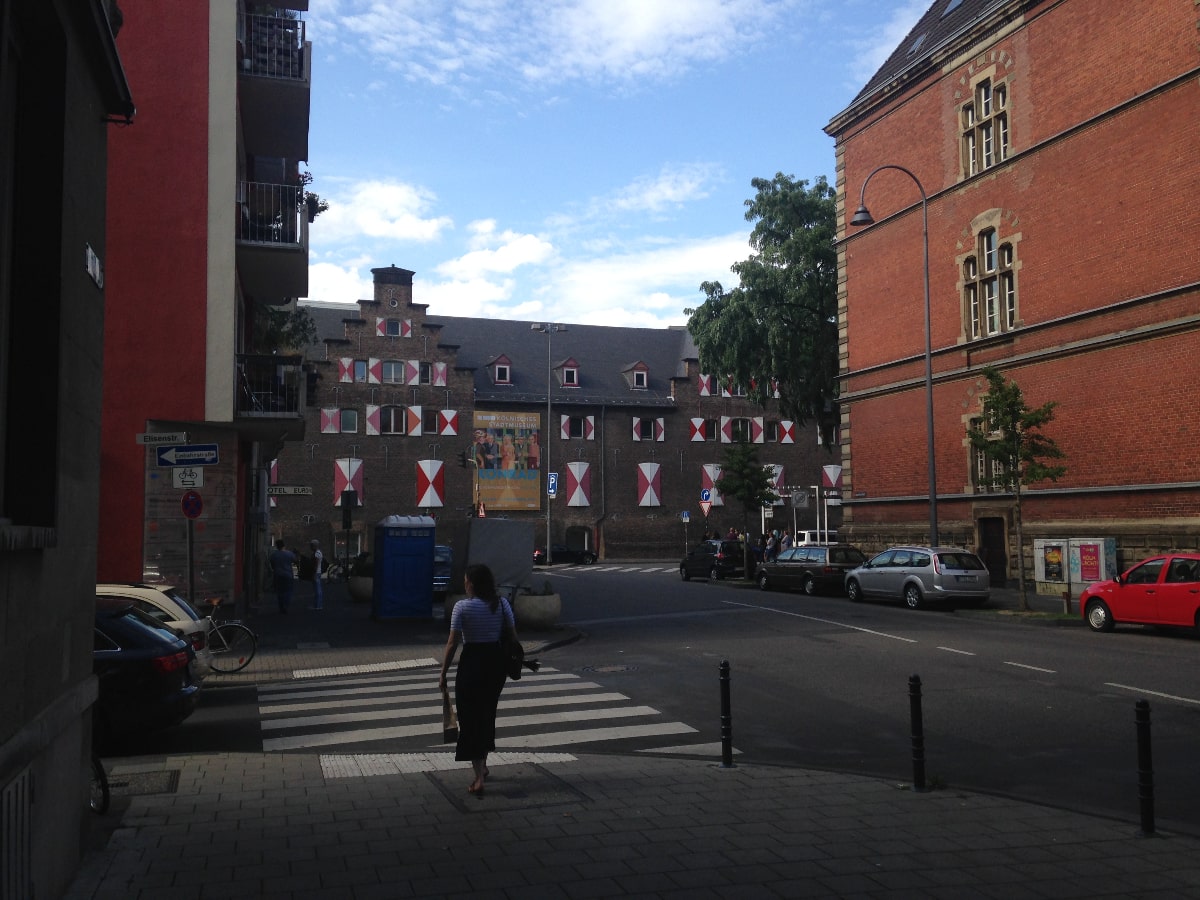Germany is the most populated and most powerful country in the European Union and it has a range of great cities that you may want to consider basing yourself in. Below, we’ll look at some of the best cities and cheapest places to live in Germany. There’s also a cost of living guide with suggested budgets for more than 20 German cities.
All living cost estimates were updated in late 2023. This takes into account significant rises in the cost of living in Germany in 2022 and 2023.
Table of Contents
- 5 of the Best Cities to Live in Germany & Work Remotely
- Moving to Germany – Useful Resources
- What are the Cheapest Cities to Live in Germany?
5 of the Best Cities to Live in Germany & Work Remotely
1. Leipzig

Affordable cities perceived to be underrated and good options for young people and creative types often don’t stay cheap for very long, but Leipzig is until this point an exception to that rule.
It was the largest city to lie completely in what used to be East Germany and there are still sections of it which really do highlight the dark times this city went through under Communist rule. However other neighbourhoods have been completely transformed and many people moving to Leipzig these days head for the former industrial neighbourhood of Plagwitz which is at the heart of the city’s creative transformation. Music lovers will certainly feel at home in Leipzig which is renowned for everything from classical music to alternative electro.
Leipzig ranks amongst the cheapest cities to live in Germany and was the joint most affordable of the 23 we looked at. Living costs in Leipzig are over 25% less than in Berlin or Munich for example.
- Estimated Living Costs in Leipzig (explanation below) – 1100-1700 Euros/month
- Estimated Digital Nomad Costs in Leipzig – 1400-2550 Euros/month
2. Berlin

Overall, Berlin is still very tough to beat and unless you don’t like big cities, it is worthy of its place at or near the top of any list of the best places to live in Germany.
The German capital, a divided city as recently as 1989, has reinvented itself spectacularly as a notoriously liberal metropolis and a real hub for arts, culture and nightlife. Its clubbing scene is legendary with world famous clubs such as Berghain cementing Berlin’s quirky and at times hedonistic reputation. It is certainly a natural choice for anyone looking to lead an alternative lifestyle in Europe and although remote working has largely gone mainstream in recent times due to the pandemic, Berlin was already pretty well equipped to cater for those looking to work remotely.
Of course, Berlin does have many other sides to it. In parts, it’s a serious city, home to both the German government and many major businesses and corporations. However unlike many other major European capitals, Berlin is not the most expensive city in its country and living and renting costs in Berlin remain relatively affordable when compared to places like London and Dublin, making it easily one of the best cities to live in Europe when all factors are taken into consideration.
- Estimated Living Costs in Berlin – 1450-2150 Euros/month
- Estimated Digital Nomad Costs in Berlin – 1800-3300 Euros/month
- Short-term rental of one bedroom apartments in Berlin – from 1300 Euros/month on Homelike
3. Cologne

Heading west, Cologne is in the heart of the heavily populated North Rhine-Westphalia region where 18 million people live. There are a number of major cities in a small area with Cologne and Dusseldorf the largest and rated amongst the best cities to live in Germany for foreigners.
Cologne has a slightly older feel to it with the famous medieval Catholic Cologne Cathedral its most recognisable building. Split almost perfectly in half by the Rhine, this riverside city is a good all-round choice with a wide selection of museums, galleries, bars and restaurants, without ever feeling too big.
The city is something of a media hub and is the centre of Germany’s television industry, and it is generally viewed as slightly friendlier than some of the country’s other major cities. You also have the advantage of very quick transport links to neighbouring cities such as Bonn and Dusseldorf so you can easily take advantage of any major festivals or events going on elsewhere in the region.
- Estimated Living Costs in Cologne – 1300-2000 Euros/month
- Estimated Digital Nomad Costs in Cologne – 1650-3000 Euros/month
- Short-term rental of Co-living rooms in Cologne – from 700 Euros/month on Homelike
4. Hannover

Hannover may not rank as Germany’s most exciting city and it has even been labelled one of its most boring to visit. However that’s not an entirely fair description and while it may lack many obvious “sights”, it has many advantages which make it a good option for living in Germany as a remote worker.
The city is known for its beautiful natural surroundings. There are many parks, forests and hiking trails nearby that provide easy escapes to city life, sometimes without even having to leave the city. The highlight is the giant Eilenriede Forest, known as the city’s green lung which is nearly twice as big as New York’s Central Park.
Hannover also benefits from a relatively low cost of living while crime rates are also very low. It’s also perfectly located in a central part of Germany with its railway station serving as a major intersection on the Dbahn network meaning there are fast rail links to Berlin, Hamburg and cites like Dortmund, Dusseldorf and Cologne in the North Rhine-Westphalia region.
- Estimated Living Costs in Hanover – 1200-1800 Euros/month
- Estimated Digital Nomad Costs in Hanover – 1500-2700 Euros/month
5. Augsburg
The southern state of Bavaria is widely seen as one of the most interesting and attractive regions in the country. However it isn’t exactly home to the cheapest places to live in Germany.
State capital Munich is the most expensive city in the country but if you want to enjoy the Bavarian lifestyle whilst keeping living costs down, Augsburg is an excellent alternative option. It’s a university town which helps to ensure there is plenty catering to those on a lower budget and it has a decent amount of evening entertainment options for a small city. It’s also really easy to get around either on foot, bike or by tram and it might just suit those who don’t like the bigger cities.
The good news is that you are also only actually around half an hour from the centre of Munich by train so you can still end up getting a really good feel for life in Munich and all of its famous events and festivals, whilst saving plenty of Euros by basing yourself in Augsburg.
- Estimated Living Costs in Augsburg – 1250-1850 Euros/month
- Estimated Digital Nomad Costs in Augsburg – 1550-2800 Euros/month
Germany Estimated Living Costs Calculation:
To help calculate the cost of living in Germany in the table below and the cities featured in this post above, we used the data from Numbeo’s cost of living guide. The estimated living costs quoted should at least allow you to compare the major German cities. They are designed to cover all living costs (including the cost of renting accommodation) for a single person although your own personal expenses will clearly depend on your lifestyle.
The lower figure might be a realistic budget for young people living in a flatshare and looking to watch what they spend. The upper figure might be more suitable for those looking to enjoy more evenings and days out whilst perhaps renting your own private property.
Digital nomads and those only looking for shorter term rentals may want to increase their budgets slightly. It’s also worth noting that none of these budgets for living in Germany factor in the cost of any travel or health insurance packages which will depend on your age and circumstances.
Moving to Germany – Useful Resources
- Find the cheapest flights to Germany by using Skyscanner, Europe’s most effective flight comparison site.
- Learning some German before you move is advisable. Consider doing a German course with Rosetta Stone to familiarise yourself with the language before heading there.
- Bahn.de is your best port of call for finding train times in Germany (and across Europe) and booking tickets.
- Watch all your favourite shows and surf the web like you’re at home with NordVPN.
- This list of rented accommodation websites will point you in the right direction when it comes to finding a room or flat.
What are the Cheapest Cities to Live in Germany?
| City | Estimated Cost of Living (Monthly in Euros) |
| Munich | 1500-2300 |
| Berlin | 1450-2150 |
| Hamburg | 1350-2050 |
| Frankfurt | 1350-2050 |
| Heidelberg | 1300-2000 |
| Dusseldorf | 1300-2000 |
| Cologne | 1300-2000 |
| Bonn | 1300-1900 |
| Mainz | 1300-1900 |
| Karlsruhe | 1300-1900 |
| Wiesbaden | 1250-1850 |
| Augsburg | 1250-1850 |
| Stuttgart | 1250-1850 |
| Rostock | 1250-1850 |
| Nuremberg | 1200-1800 |
| Hannover | 1200-1800 |
| Bremen | 1150-1750 |
| Kiel | 1150-1750 |
| Braunschweig | 1100-1700 |
| Dresden | 1100-1700 |
| Erfurt | 1100-1700 |
| Aachen | 1100-1700 |
| Leipzig | 1100-1700 |
Which city in Germany is the cheapest? According to these figures, Leipzig, Aachen, Erfurt, Dresden and Braunschweig are some of the cheapest German cities. Savings of at least 400 Euros per month can be made by being based in one of those when compared to Munich which is very significant for anyone working remotely and not needing to factor in the differing salaries across the country.
Overall, it really is worth considering just what you are trying to get from your experience in Germany, whether it’ll be just for a few months or a longer-term period. Basing yourself in a more affordable, well located city with good transport links can pay dividends and you can still get out and about and see the best of the country.

However, for others, paying slightly more to live in a buzzing city like Berlin, will more than justify the extra expense. You might have to be a bit savvy in terms of finding cheap options for eating and drinking out, but it should still be possible to keep costs down if you know where to go.
Given Germany is the European country with the largest economy, even some of the more expensive cities offer good value for money while more affordable cities are comparable in costs to some of the cheapest places to live in Sweden for example.
If saving cash is the number one priority though, there are certainly better options elsewhere in Europe. That’s true even close by with some of the cheapest places to live in the Czech Republic offering big savings on German living costs whilst still having convenient transport links to cities such as Dresden and Berlin.

